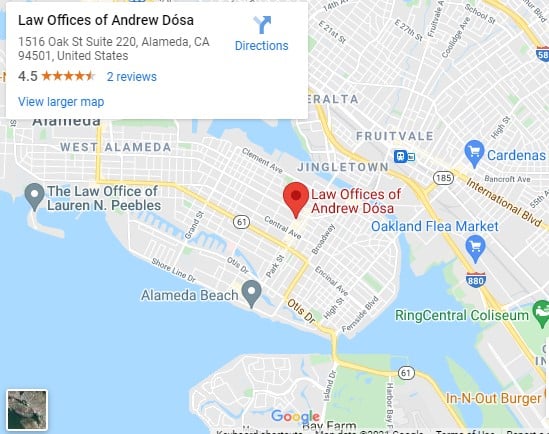Installment six includes the first eight of our 16 points in the Memorandum of Points and Authorities.
C. POINTS AND AUTHORITIES
A search without a warrant is presumptively illegal, and must be justified by the prosecution. The prosecution bears the burden of establishing the legality of a warrantless search. “It is hornbook law that searches conducted outside the judicial process, without prior approval by judge or magistrate, are per se unreasonable under the Fourth Amendment’s warrant requirement unless they fall within one of a few narrow exceptions thereto. (Coolidge v. New Hampshire (1971) 403 U.S. 443, 454-455 [29 L.Ed.2d 564, 576, 91 S.Ct. 2022] (plur. opn. by Stewart, J.).)” (People v. Osband (1996) 13 Cal.4th 622, 673; internal quotation marks omitted; see also Mincey v. Arizona (1978) 437 U.S. 385, 390.) Further, when law enforcement officers conduct a warrantless search, the prosecution has the burden of justifying the search under a recognized exception to the constitutional warrant requirement. (Welsh v. Wisconsin (1984) 466 U.S. 740, 749-750; People v. James (1977) 19 Cal.3d 99, 106 [137 Cal.Rptr. 447, 561 P.2d 1135].)
The prosecution’s burden of proof is preponderance of the evidence. (People v. Superior Court (Bowman) (1971) 18 Cal.App.3d 316.)
I. CAR STOP UNLAWFUL FOR LACK OF REASONABLE SUSPICION
A vehicle cannot be stopped unless the police have reasonable suspicion for that stop. “A traffic stop is justified at its inception if based on at least reasonable suspicion that the driver has
violated the Vehicle Code or some other law. However, it must be temporary and last no longer than is necessary to effectuate the purpose of the stop. (Florida v. Royer (1983) 460 U.S. 491, 500 [75 L.Ed.2d 229, 238, 103 S.Ct. 1319] (plur. opn.).” (People v. Bell (1996) 43 Cal.App.4th 754, 761; internal quotation marks, citations omitted.)
II. ILLEGALLY PROLONGED DETENTION
Even if a detention is initially lawful, it can become illegally prolonged if it continues beyond the time necessary to resolve the initial detention. (People v. McGaughran (1979) 25 Cal.3d 577 [159 Cal.Rptr. 191, 601 P.2d 207] teaches about unlawful prolongation of traffic stop detentions. It instructs that when a police officer prolonged a valid traffic detention beyond the point when such duties as were `reasonably necessary’ to issue a traffic citation had been performed, the detention then became illegal. Any evidence seized during the illegal detention would then be suppressed.” (People v. Lusardi (1991) 228 Cal.App.3d Supp. 1, 4.) “In assessing whether a detention is too long in duration to be justified as an investigative stop, we consider it appropriate to examine whether the police diligently pursued a means of investigation that was likely to confirm or dispel their suspicions quickly, during which time it was necessary to detain the defendant.” (U.S. v. Sharpe (1985) 470 U.S. 675, 686, 105 S.Ct. 1568; see also People v. Clair (1992) 2 Cal.4th 629, 675.)
In Rodriguez v. U.S. (2015) 575 U.S. 348, 135 S. Ct. 1609, the United States Supreme Court examined a prolonged detention in a dog sniff case where a vehicle had been stopped for a traffic violation. (Ibid). In Rodriguez , the officer stopped a vehicle after observing it drift onto the shoulder of the road. (Id., at 1613.) Two men were in the vehicle. Rodriguez was the driver. (Ibid). The officer explained to Rodriguez why he stopped the vehicle and asked to see Rodriguez’s driver’s license, registration and proof of insurance. (Ibid). After running a records check on Rodriguez (which turned up nothing), the officer went back to the suspect vehicle and asked the passenger for his driver’s license. Ibid. The officer began questioning both men and obtained slightly different stories. The officer then returned to his patrol vehicle and ran a warrant check on the passenger. Ibid. That check was also negative. The officer then called for backup and began to write a warning citation to Rodriguez about driving on the shoulder. Ibid.
The officer returned to the stopped vehicle to issue the warning, and returned all documents to the driver and passenger. Id., at 1613. At the hearing on the motion to suppress, the officer acknowledged that the reason for the stop had been completed when he returned back to the stopped vehicle with the warning citation. (brownshvac.net) Ibid. The officer then asked Rodriguez for permission to walk his dog around the vehicle. Rodriguez said “no.” The officer then instructed the driver to turn off the ignition and step in front of the vehicle to await backup. After the backup officer arrived, the officer walked his dog around the vehicle. The dog alerted. A search ensued, and the officers found a large bag of methamphetamine in the vehicle.(Ibid).
The time between the initial stop and the discovery of the contraband was 29 minutes. Id., at 1617. The trial court denied the motion to suppress. Ultimately, the Supreme Court reversed. The Court found that the Fourth Amendment precluded extension of the otherwise-completed traffic stop absent some further reasonable suspicion sufficient to justify the canine sniff. Id., at 1616-17. The Court held that a “seizure justified only by a police-observed traffic violation, therefore, ‘becomes unlawful if it is prolonged beyond the time reasonably required to complete th(e) mission’ of issuing a ticket for the violation.’” Rodriguez, 575 U.S. at 1612 (quoting Illinois v. Caballes (2005) 543 U.S. 405, 407).
III. ILLEGAL ARREST
An officer may arrest a defendant only if the officer has probable cause to believe that the defendant has committed a crime. “The courts have long recognized that an investigative detention may, at some point, become so overly intrusive that it can no longer be characterized as a minimal intrusion designed to confirm quickly or dispel the suspicions which justified the initial stop. At that point what started as a detention may be converted into an arrest, which must then be justified by probable cause.” (People v. Rivera (1992) 8 Cal.App.4th 1000, 1005-1006; citations omitted.) “Probable cause to arrest exists when the facts known to the arresting officer would lead a person of ordinary care and prudence to entertain an honest and strong suspicion that the person arrested is guilty of a crime.” (People v. Turner (1994) 8 Cal.4th 137, 185; quotation marks and citations omitted.)
IV. ILLEGAL SEIZURE OF PROPERTY
An officer may seize an item only if the officer has probable cause to believe the item is related to a crime. “[T]he United States Supreme Court in Arizona v. Hicks (1987) 480 U.S. 321, 326 [107 S.Ct. 1149, 1153, 94 L.Ed.2d 347], held that, when the initial intrusion that brought officers within plain view of an item is supported by one of the recognized exceptions to the warrant requirement, such as exigent circumstances, the seizure of items not listed in a warrant is legal only if the police have probable cause to believe (rather than merely a reasonable suspicion) that the items are related to a crime.” (People v. Bradford (1997) 15 Cal.4th 1229, 1290.)
V. FAILURE TO GET A SEARCH/ARREST WARRANT
Searches without warrants may be excused only by exigencies or consent. “Whenever practicable law enforcement officers must obtain advance judicial approval of searches and seizures through the warrant procedure and in most instances failure to comply with the warrant requirement can only be excused by exigent circumstances. (Terry v. Ohio (1967) 392 U.S. 1, 20 [20 L.Ed.2d 889, 905, 88 S.Ct. 1868].)” (People v. Medina (1972) 7 Cal.3d 30, 37.)
VI. INVALID CONSENT TO SEARCH
A consent to search must be freely and voluntarily given, or it is invalid. “Consent can be given to a search, but the consent must be unequivocal, specific, and freely and intelligently given. (Parrish v. Civil Services Commission (1967) 66 Cal.2d 260 [57 Cal.Rptr. 623, 425 P. 2d 223].) The consent must be voluntary and not in response to any express or implied assertion of authority. Conversely, if the consent is given because of an unlawful assertion of authority, it is not voluntary and is unlawful. (Florida v. Royer (1983) 460 U.S. 491 [75 L.Ed. 2d 229, 103 S.Ct. 1319]; Wilson v. Superior Court (1983) 34 Cal.3d 777 [195 Cal.Rptr. 671 P.2d 325].)” (People v. Bailey (1985) 176 Cal.App.3d 402, 405.)
VII. SCOPE OF CONSENT
The scope of a search is limited to the scope of the consent to that search. “The authority to search pursuant to a consent must be limited to the scope of the consent.” (People v. Superior Court (Arketa) (1970) 10 Cal.App.3d 122, quoted in People v. Boragno (1991) 232 Cal.App.3d 378, 388.)
VIII. SCOPE OF SEARCH INCIDENT TO ARREST INVALID
The scope of a search incident to an arrest is limited to the arm’s reach of the suspect arrested. “It is settled Fourth Amendment doctrine that a police officer may, incident to a lawful arrest, conduct a contemporaneous warrantless search of the arrestee’s person and of the area into which the arrestee might reach to retrieve a weapon or destroy evidence.” (People v. Ingham (1992) 5 Cal.App.4th 326, 330; citation omitted.)




